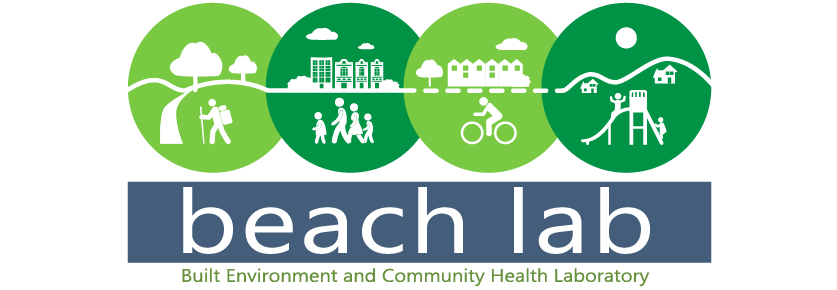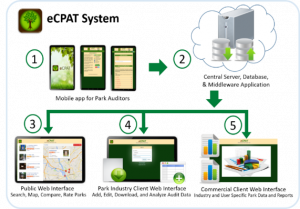| Advancing public park information and technology resources to diverse audiences for healthy communities. | |
 Parks are key community resources that provide numerous psychological, physiological, and social benefits. Most notably, parks can facilitate health cost savings (more users benefiting from physical activity, stress relief, etc.) that can contribute to the prevention of chronic conditions such as depression, obesity, diabetes, and cancers. However, maximizing the potential of community parks requires an accurate understanding and promotion of park resources. The eCPAT System is intended to be a set of evidence-based tools to engage diverse stakeholders in evaluating, improving, and accessing park information to improve awareness and promote park-based physical activity and community health. Parks are key community resources that provide numerous psychological, physiological, and social benefits. Most notably, parks can facilitate health cost savings (more users benefiting from physical activity, stress relief, etc.) that can contribute to the prevention of chronic conditions such as depression, obesity, diabetes, and cancers. However, maximizing the potential of community parks requires an accurate understanding and promotion of park resources. The eCPAT System is intended to be a set of evidence-based tools to engage diverse stakeholders in evaluating, improving, and accessing park information to improve awareness and promote park-based physical activity and community health. |
|
Funding
|
|
eCPAT Prototype
|
|
Current StagesThe eCPAT Project will include two phases: Phase 1: Development of the eCPAT System including:
Phase 2: Gather feedback on the value, content, feasibility, and dissemination of the eCPAT System via key informant interviews and workshops with:
|
|
Future DirectionsPotential future stages include:
|
|
More informationFor more information about eCPAT, please see this brief project description and feel free to contact us: Andrew Kaczynski, PhD Ben Schooley, PhD Gina Besenyi, PhD Sonja Wilhelm Stanis, PhD Shirelle Hallum, MPH |
|

 This project is funded by the
This project is funded by the  A preliminary eCPAT mobile application was developed based on the original
A preliminary eCPAT mobile application was developed based on the original 